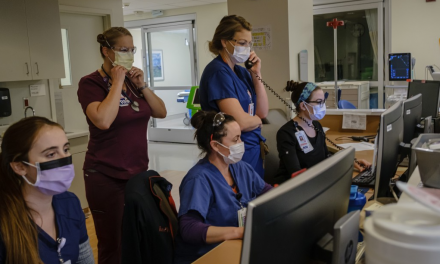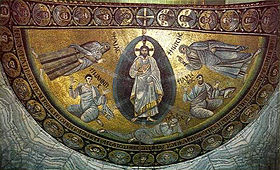Is 66:10-14c
Ps 66:1-3, 4-5, 6-7, 16, 20
Gal 6:14-18
Lk 10:1-12, 17-20
I’m a person who likes to try new things – especially in service of fixing problems or righting injustices. I think maybe if I just tweak the right thing, make the correct adjustment, all will be well. I will edit, and re-edit, an essay; change my teaching strategy and books every semester; attend new groups’ protests; change my buying habits, my eating habits, my driving habits, my prayer. Sometimes I’ve made rather big changes: I moved halfway across the country twice: once to change grad schools and once to change my job.
I suspect most readers will see these kinds of changes as normal, required even, since we are always confronted with new evidence, new circumstances, new spiritual nudges. Yet today’s scriptures ask us to take seriously that sometimes – maybe even most of the time – staying put is what God asks us to do.
For example, Isaiah’s prophetic words offer lively metaphors of mothers nursing children as an image of the kingdom of God. The thing about nursing, though, is that a lot of it is rather dull, even drudgery, and it involves a lot of sitting. As you might guess from my first paragraph, I am rather bad at patience; I want to check things off my to-do list and keep moving ahead with the next thing that needs to be done. A nursing relationship doesn’t work well with my checklist desires, however. Young babies need to be nursed frequently and not at all on a timetable; older nurslings want comfort at random times. To be a mother who “comforts her child” is to be someone who is always on call, willing to set aside what one is working in, in favor of sitting down, embracing, staying put for a while. At such moments, I get bored, tired, angsty, itchy, testy and so forth. The act of nursing schools me in the necessary habit of slowing down, becoming more patient, enabling myself to connect with the person in front of me here and now, rather than worrying about the next moment that is to come.
In other words, seeking the next new thing can be a way of avoiding problems and people, rather than a way of seeking to fix problems. We might make crucial mistakes, including solving exactly the wrong problem, or making more of a mess than we began with, precisely because we weren’t paying attention. I’ve certainly made more than my share of mistakes in my relationships, butting in where I wasn’t needed, or responding to people in ways that were actively unhelpful. Making timefulness and patience habits of our lives enables better engagement – that is to say, better love of our neighbors.
Paul’s message in today’s second reading asks us to contrast worrying about a key theological question of his day (circumcision? no circumcision?) with simply remaining with the wounds of Christ. Rather than participating in the debate, Paul just… doesn’t. And with that he reminds me: not every debate is one I must engage. Sometimes the terms of a debate just really aren’t the significant point, however significant they may seem in the moment. The thing is, in the heat of a debate, it is easy to get caught up and to see that as important. But taking that step back, aiming to remain in the wounds of Christ gives space for reflecting on what needs doing now – and what might not be needed.
Finally, Jesus’ call and sending of the seventy-two details how Christian disciples live as they seek to follow him. I notice especially that Jesus asks his disciples to “stay in the same house and eat and drink what is offered.” Indeed he expressly forbids moving “from house to house.” Perhaps another way to put it is: the grass is not always greener. It’s a reminder that sometimes the reasons we restlessly move from place to place is not, in fact, because movement solves anything really – but because we perceive the new place as offering better food, housing, money, power, and so forth.
These days, we have much about which to be restless, angsty, and upset over (with much justification): wars in Ukraine, Yemen, Ethiopia and more; the January 6th Commission results; what the new, justice-seeking responses of the pro-life movement need to be (especially for mothers); inflation and the possibility of recession; the continuing fallout of COVID; the continued disparity between haves and have nots; the degradation of the environment; and many, many more things.
In the midst of all these massive changes, I think it is difficult to think about staying put – at least for me. But I can also see the real danger of trying not to stay put. Jesus’ word of life to us this week is: consider staying for a while – Not in order to avoid justice or making the necessary moves – but precisely in order that we might respond well, and with great love.




